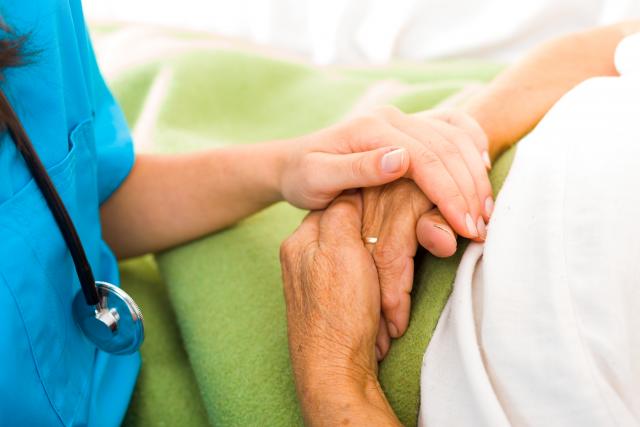
By Maeve Bannister and Samantha Lock, AAP
Australia’s aged care workers are celebrating a substantial pay rise after a years-long campaign their union says will usher a “new era of decency and dignity”.
Aged-care workers have showered each other in streamers and struggled to hold back their tears after hearing they would receive a big pay rise to ensure they could carry out their work with the “dignity” older Australians deserve.
About 400,000 workers will receive a wage boost of up to 28 per cent after the Fair Work Commission delivered a landmark decision for the sector.
It comes after nearly four years of fighting since the Health Services Union in 2020 lodged an application for a 25 per cent increase across the board.
“These people aren’t just our friends … these people are our family,” reporters were told on Friday by Mark Castieau, a retired aged-care chef and one of the original applicants.
Personal carers are set to get an increase between 18.2 and 28.5 per cent, home-care staff will get a rise between 15 and 26 per cent and there will be a 6.8 per cent boost for those involved in support services under the commission’s decision, which was delivered on Friday.
The commission awarded an interim 15 per cent pay rise to direct-care employees at the end of 2022, with the industrial umpire saying this was plainly justified by work-value reasons.
Since then, the union has continued to push for a comprehensive increase for all staff.
The union’s national president Gerard Hayes said it was a historic improvement for those working in the sector.
“This is an historic improvement that will usher in a new era of decency and dignity in our aged care homes,” he said.
“Dignity comes to aged care, older people will not be treated as commodities.
“This decision will go a long way to ensure that people can age with dignity and people can care for people without going into poverty.”
Mr Hayes said the decision puts many members in a position where they can do one job, as opposed to two or three jobs.
“We will see a lot of people, particularly in regional NSW, start to move out of hospitals into aged care, because they love the work,” he told reporters.
Mr Hayes also acknowledged the significance of the decision for what he describes as an overwhelmingly feminised workforce.
“The average superannuation balance of our women is $18,000 which is just unacceptable … this will go a long way to changing that,” he said.
The federal government agreed to support the previous, 15 per cent increase for publicly funded facilities, and has backed the push for a further rise.
The commission’s latest decision, which includes the earlier rise, will be finalised after submissions from the interested parties, with the phasing-in schedule still to be decided.
The 15 per cent increase kicked in at the start of the 2023/24 financial year.
The Australia Institute said the aged-care pay decision was a crucial call that would improve the lives of elderly Australians.
“For too long, aged-care work has been undervalued and low paid,” the left-leaning think tank’s policy director Fiona Macdonald said.
“The Fair Work Commission’s decision to award additional pay rises, on top of an interim 15 per cent wage rise, is vital to fixing this.”
Anglicare Australia, Catholic Health Australia, Uniting and the Aged and Community Care Providers Association all called on the government to stand by its commitment to fully fund the rise.
“The federal government must deliver on its commitment to fully fund these wage rises as soon as possible, including any leave entitlements,” Catholic Health director Laura Haylen said.
Federal Health Minister Mark Butler said the government was examining the “lengthy and highly detailed” content of the decision.
“We have committed to provide funding to support increases to award wages made by the Fair Work Commission in this matter and that will help deliver a higher standard of care for older Australians,” he said in a statement.






